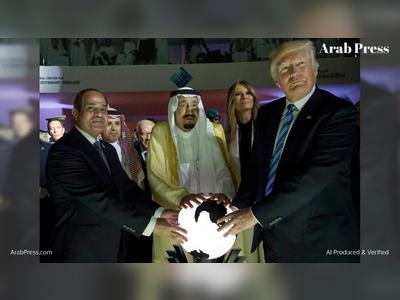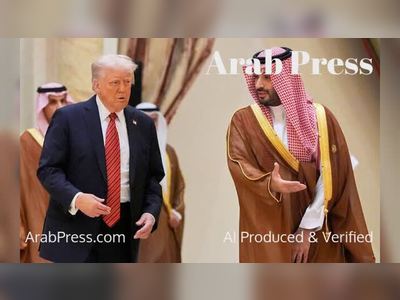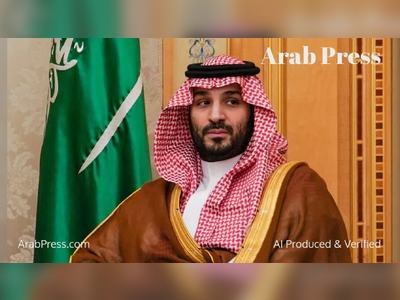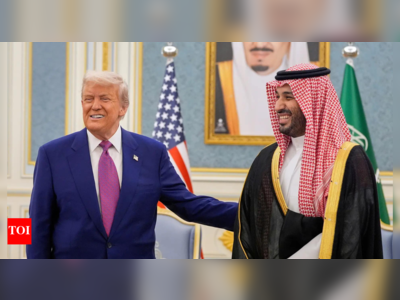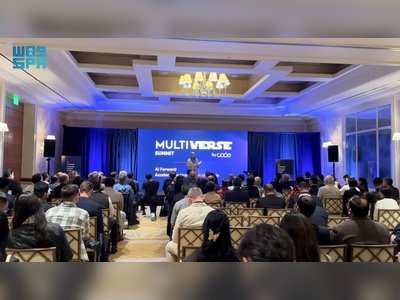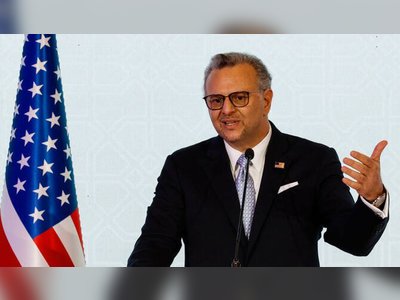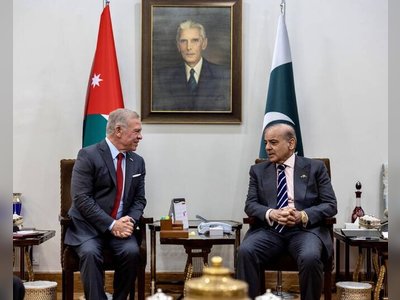Saudi Arabia’s Ambitious Defence Wish List for Washington: From AI Drones to Nuclear Umbrella
Crown Prince’s visit sees Saudi demands for advanced drones, artificial-intelligence chips and a U.S. security pact overshadowing normalisation talks with Israel
Crown Prince Mohammed bin Salman arrives in Washington on Monday carrying a high-stakes agenda that goes well beyond the usual arms sales.
Among the items on his wish-list: artificial-intelligence chips, AI-powered reconnaissance and combat drones, a major fighter-jet deal – and potentially access to the United States’ nuclear umbrella.
The breadth of the list signals Riyadh’s evolution into a forward-thinking defence buyer.
Saudi Arabia has positioned itself not only as a purchaser of U.S. systems, but as a partner seeking technology transfer, local defence-industry growth and alignment with Washington’s strategic goals.
The kingdom’s push for AI chips and local production underscores the ambition of its Vision 2030 agenda.
One of the most consequential items is the request for stealth fighter jets – specifically the F-35 – which would mark a significant shift in the Gulf’s military balance.
The Crown Prince also seeks a defence pact akin to the treaty Qatar signed, under which an attack on the kingdom would trigger a U.S. response.
For Riyadh, symbolically and practically, this represents a leap from being a mere buyer to a trusted strategic partner.
In parallel, Saudi Arabia’s drone requirements are taking shape.
Negotiations are advanced for U.S. MQ-9-series drones and related systems that include domestic manufacturing involvement.
The AI dimension is also front and centre: the kingdom is pursuing American delays and chips to power its emerging AI data centres and surveillance architecture.
Observers say that while the United States stands ready to leverage Saudi liquidity and strategic geography under President Donald Trump’s pro-arms-export and pro-business agenda, the core breakthrough remains elusive.
The deal will have to reconcile three key issues: safeguarding Israel’s qualitative military edge, protecting U.S. technology from Chinese access, and managing regional sensitivities around Saudi ties with China and Iran.
The normalisation of Saudi–Israeli relations has long been the backdrop for defence bargains, but officials now suggest Riyadh is decoupling the two.
The kingdom is signalling it is prepared to secure U.S. hardware without formal diplomatic recognition of Israel – thereby shifting the balance of bargaining power.
As the visit begins, all eyes will be on language in the joint U.S.–Saudi communique, treaty drafts, and defence-industry memoranda.
Whether Riyadh secures what it calls a credible and “clear defence arrangement” rather than symbolic commitments could determine the depth of the alliance in the coming decade.
With both parties looking for demonstrable outcomes, what the kingdom achieves in Washington may set the tone for the next stage of Gulf security architecture and U.S.-Saudi industrial cooperation.
Among the items on his wish-list: artificial-intelligence chips, AI-powered reconnaissance and combat drones, a major fighter-jet deal – and potentially access to the United States’ nuclear umbrella.
The breadth of the list signals Riyadh’s evolution into a forward-thinking defence buyer.
Saudi Arabia has positioned itself not only as a purchaser of U.S. systems, but as a partner seeking technology transfer, local defence-industry growth and alignment with Washington’s strategic goals.
The kingdom’s push for AI chips and local production underscores the ambition of its Vision 2030 agenda.
One of the most consequential items is the request for stealth fighter jets – specifically the F-35 – which would mark a significant shift in the Gulf’s military balance.
The Crown Prince also seeks a defence pact akin to the treaty Qatar signed, under which an attack on the kingdom would trigger a U.S. response.
For Riyadh, symbolically and practically, this represents a leap from being a mere buyer to a trusted strategic partner.
In parallel, Saudi Arabia’s drone requirements are taking shape.
Negotiations are advanced for U.S. MQ-9-series drones and related systems that include domestic manufacturing involvement.
The AI dimension is also front and centre: the kingdom is pursuing American delays and chips to power its emerging AI data centres and surveillance architecture.
Observers say that while the United States stands ready to leverage Saudi liquidity and strategic geography under President Donald Trump’s pro-arms-export and pro-business agenda, the core breakthrough remains elusive.
The deal will have to reconcile three key issues: safeguarding Israel’s qualitative military edge, protecting U.S. technology from Chinese access, and managing regional sensitivities around Saudi ties with China and Iran.
The normalisation of Saudi–Israeli relations has long been the backdrop for defence bargains, but officials now suggest Riyadh is decoupling the two.
The kingdom is signalling it is prepared to secure U.S. hardware without formal diplomatic recognition of Israel – thereby shifting the balance of bargaining power.
As the visit begins, all eyes will be on language in the joint U.S.–Saudi communique, treaty drafts, and defence-industry memoranda.
Whether Riyadh secures what it calls a credible and “clear defence arrangement” rather than symbolic commitments could determine the depth of the alliance in the coming decade.
With both parties looking for demonstrable outcomes, what the kingdom achieves in Washington may set the tone for the next stage of Gulf security architecture and U.S.-Saudi industrial cooperation.
